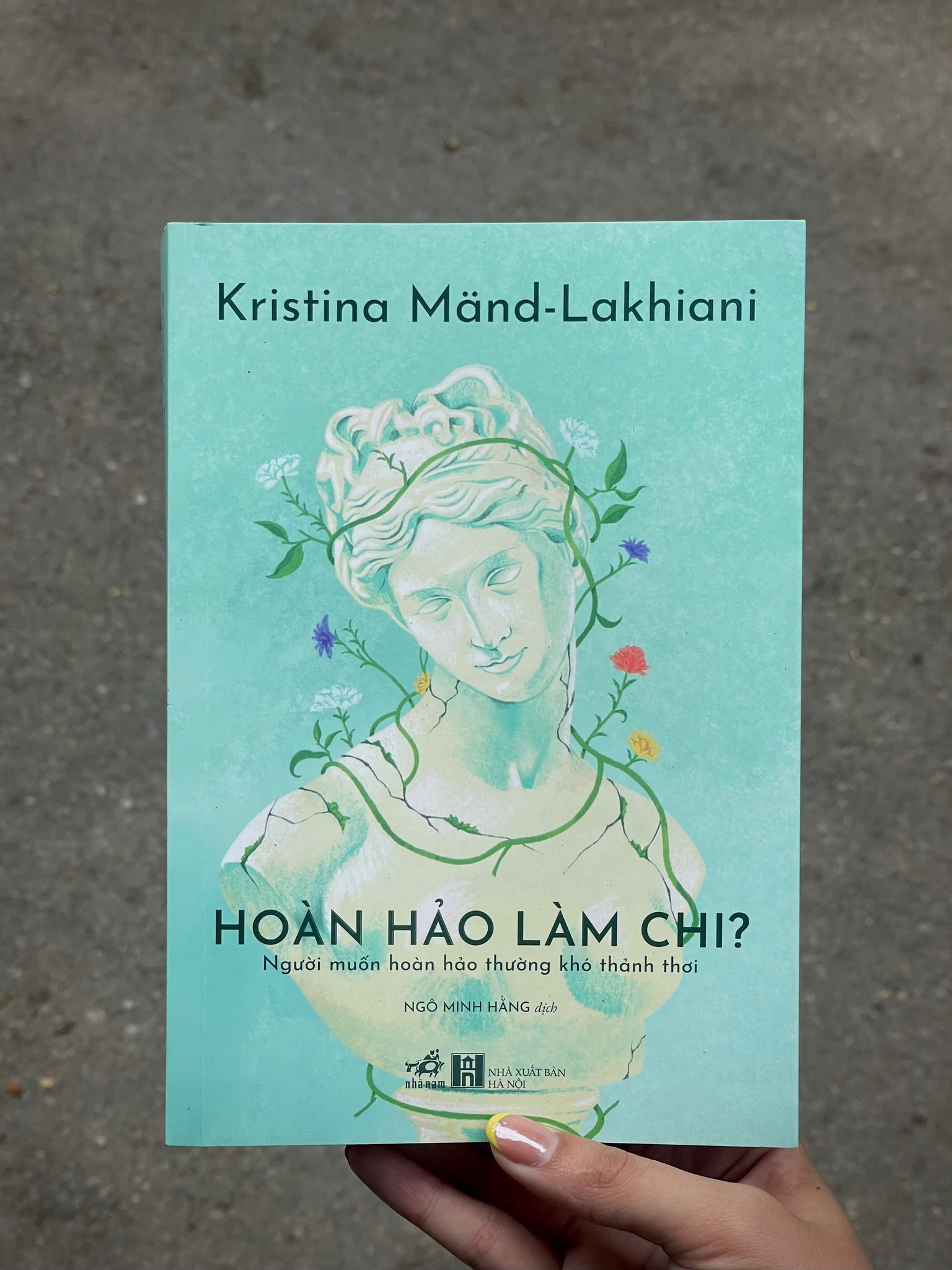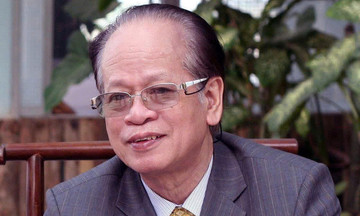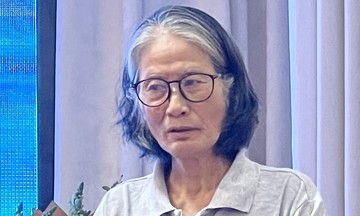The book, "Why Be Perfect? - Perfect People Rarely Relax", was released in Vietnam in July. Divided into seven sections, the book explores living authentically and embracing imperfection. Sections such as "The Road Back to Myself," "Finding My Truth," and "The Art of Imperfection" share the author's insights gleaned from years of experience.
 |
Cover of "Why Be Perfect? - Perfect People Rarely Relax". Photo: Nha Nam |
According to Mand-Lakhiani, perfectionism hinders true happiness. In today's fast-paced society, people often focus on who they should become, striving for an ideal self rather than accepting and embracing their true selves.
This pursuit left the author feeling lost and never content. "Now I want to find my way back," she declares in the book's opening message. She recounts a conversation where someone told her, "I miss you," and she instinctively replied, "I miss me too." This unconscious moment was a revelation. "I was living my life, filling my time, but something essential was missing – myself," she writes.
However, shedding these constraints isn't a quick fix. It's a long process requiring considerable effort. Quoting Helen Keller, the author writes, "Happiness is one of the ripest fruits in the garden of life. As with all fruits, it needs nurturing."
People are inherently imperfect. The book encourages readers to present themselves authentically, without taking on overwhelming social roles. "It takes courage to introduce your new self to the world, especially to those you love," Mand-Lakhiani writes.
Each chapter concludes with a "Reflection Space," encouraging readers to apply the concepts discussed. For example, in the chapter "Success is Not the Destination," the author addresses the common belief that happiness comes from success.
She writes, "This illusion contributes to 'Hermione Syndrome' and fuels perfectionism, leading to self-criticism and difficulty accepting ourselves." She suggests creating a two-column list: one for actions leading to achievement, the other for activities bringing joy and fulfillment. This exercise helps differentiate success from happiness.
The appendix includes an expanded emotional vocabulary, with words ranging from gentle to intense. Mand-Lakhiani avoids labeling emotions as "negative" or "positive," viewing them as fundamental and relative states of being. Even pleasant emotions can become detrimental in excess.
 |
Author Kristina Mand-Lakhiani. Photo: Mindvalley |
Kristina Mand-Lakhiani, 48, born and raised in Estonia, is an entrepreneur, speaker, and bestselling author with nearly 20 years of experience in transformational education. She co-founded Mindvalley, a global online learning platform focused on personal growth and potential.
Khanh Linh












